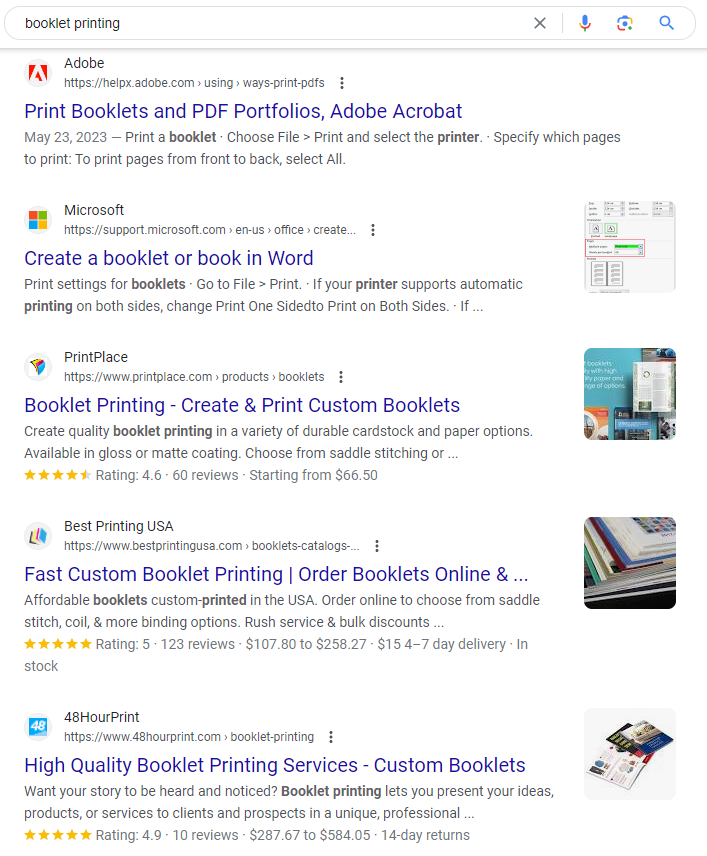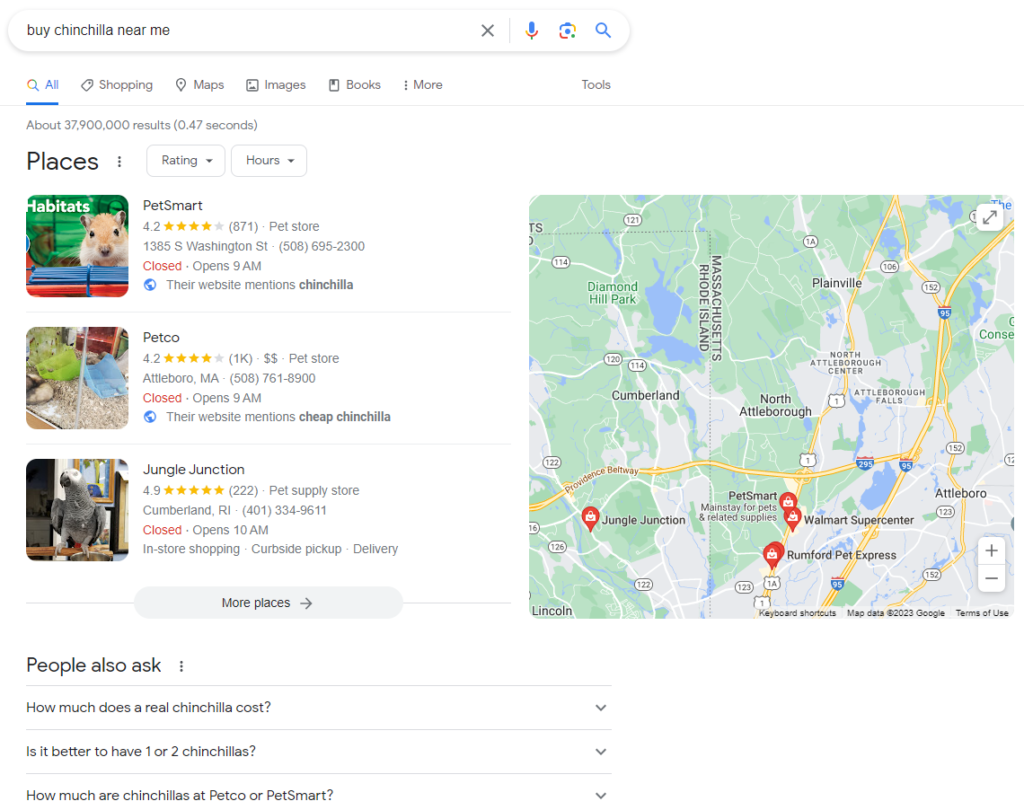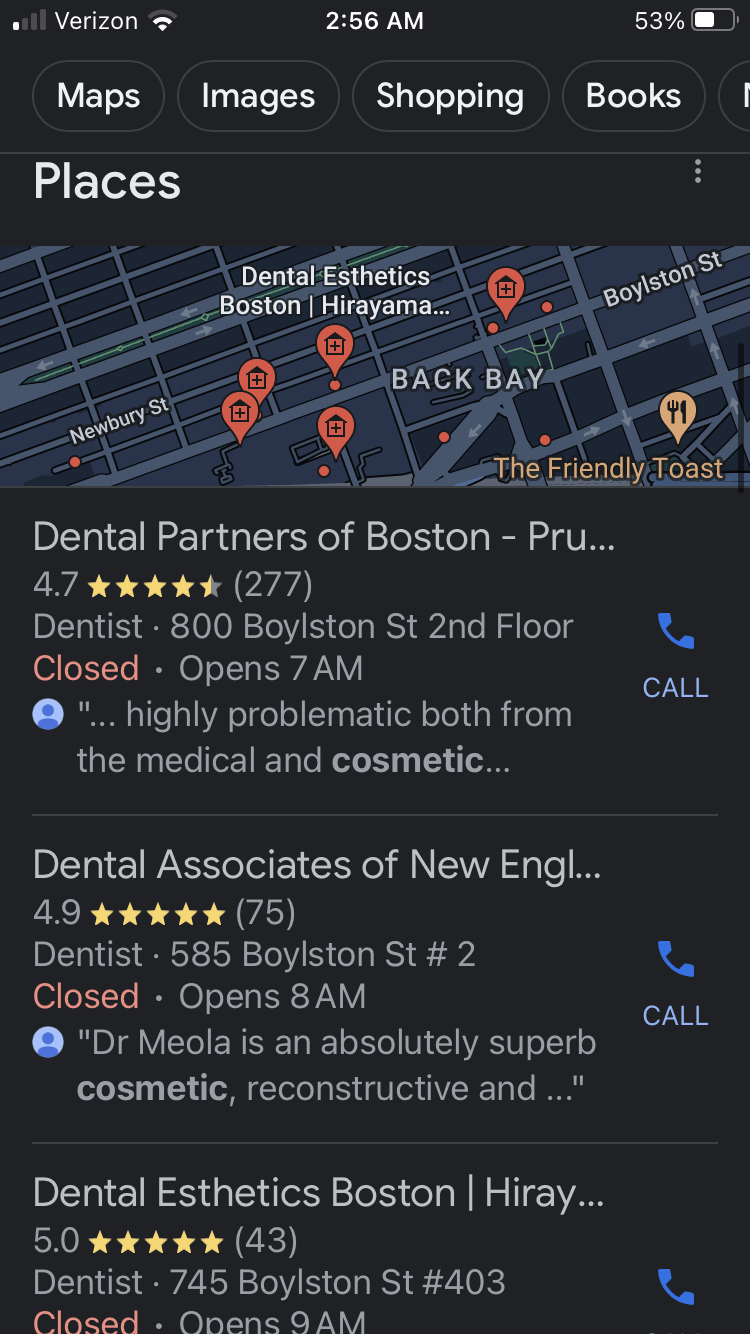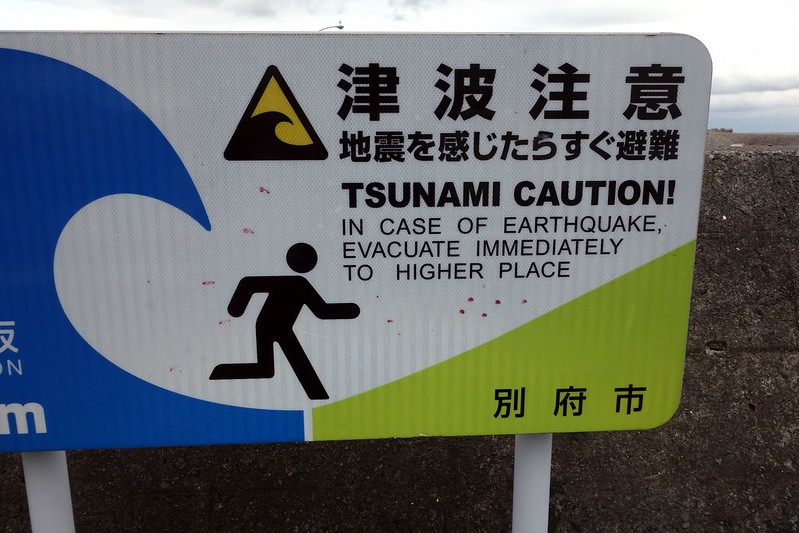In my experience and probably in yours, the Google Maps / 3-pack results jump up and down constantly, and more often and less predictably than the organic results do. The 3-pack changes when you go from one end of town to another, and they change when you wait for 8:00AM to become 8:00PM. Competitors new and old start and stop ranking for no apparent reason. The organic results jump around, too, of course. But one bucks like a rodeo horse, and the other bucks like a rodeo horse that’s becoming a gelding.
The Google Maps results are hard to measure, harder to understand, and nigh impossible to predict. Doesn’t mean you can’t do effective local SEO anyway, but you’ll have an easier time of it and might lower your blood pressure a little if you have a better handle on how the Maps results are more likely to shift, why they’re more likely to shift, and how you should adjust your strategy.
As usual, all I can do is tell you what I’ve observed over the years. So if the question is why the Google Maps weather is stormier than the organic-search weather, I’d give you 19 reasons:
1. Maps algorithm updates are smaller in scope and easier to crank out. It’s less effort for Google to make an algorithm update that affects only locally-operating businesses than to roll out an algorithm update that may affect all businesses (local + national + international) and all websites (business + everything else). We’re talking about millions of Google Business Profile pages vs. trillions of webpages and billions of videos.
2. Businesses’ websites and backlinks are less likely to change from day to day. Organic results depend mainly on businesses websites and their backlinks. Google Maps results depend on websites and backlinks, AND on Google Business Profiles, local citations, reviews, and suspensions. There are more moving parts business owners and SEOs can tinker with daily to affect their Maps results, and fewer moving parts that can alter the organic results. On any given day people are more likely to get 3 new reviews, mess with their GBP page, try spam, or report a competitor’s spam than to nab a juicy backlink.
3. The organic results need to be crawled and indexed (or deindexed), which can take a while, whereas a Google Business profile can appear on the map in a few minutes and be removed in a few minutes. On the map Google’s GI tract is shorter. (Smarter people than me can comment on whether Google Maps POIs are in fact crawled by Googlebot and are entered into a different index. For now, suffice it to say that Google Maps results aren’t indexed the same way organic results are.)
4. There are roughly 10 organic results on page one*, whereas the Google Maps equivalent of page one is the 3-pack, with only 3 results (plus an ad). Businesses are fighting over fewer spots. (*Or whatever we’re calling the top of the SERP in these days of infinite scrolling.)
5. In Maps virtually everyone is a competitor, whereas in the organic results many of the other sites belong to entities that aren’t in direct competition with you. Lots of directories, educational sites, and other sites that aren’t on the other side of your chessboard.

6. Often a business has more Google Business Profile pages than it has websites. Google has to figure out what to do with all that redundancy, and whether and how to fit it into the search results. Especially between service-area businesses and larger organizations, you’ll see more GBP pages competing over the same small number (3) of highly visible spots in Google Maps. Often you’ll see a situation like a poorly-run business that also has weak local SEO but has 9 GBP pages vs. a well-loved business with great reviews and solid backlinks that has only 1 GBP page. One has many more opportunities or at-bats to rank, but the other is a better search result, so who prevails? Damned if I know; the results change all the time.
7. Google can divide up the Maps results between competitors in even more ways. For every business that ranks for the terms its owners care about, there are about 5 businesses trying to knock it off the throne. If you’ve got 30 dentists in a city, all trying to rank roughly for the same search terms in the same city, a few will rank for “dentists” and “dentist near me” and similar big terms, whereas others will rank only for cosmetic terms, others only for oral-surgery terms, others only for pediatric terms, and so on. The dentist who ranks for the broad term will also try to rank for the more-specialized terms, and the dentists who’ve been pigeonholed will try to rank for the broad terms. Game on.

8. In Google Maps spam is easier to create, and therefore even more plentiful than in the organic results (and that’s saying a lot)l. Maps spammers generally only need to create or alter a GBP page, which is free, rather than build a site, buy a site, build a page, pay for spun-up content, or buy backlinks from questionable sites. With more spam in the results you’ll see more “easy come, easy go” situations and therefore more ups and downs.
9. It’s easier to see cause and effect in Maps. Change your title tag, flesh out your homepage, go bananas on “service” pages, or get some locally-relevant backlinks and you might see an improvement in the organic results next week, next month, or 7 months from now. Stuff keywords into your GBP name, get a spammy competitor removed from the map, move to a new address, start showing your address after you’ve been hiding it, or fix an ill-fitting category or the wrong landing page URL and you can see an instant jump (or drop) in the rankings.
10. The possible upside of successful Maps-spamming is near-instant visibility. (Spamming the organic results can produce fast visibility, too, but it usually takes much longer to overtake sites that may have been ranking and racking up backlinks for many years.) Especially for the owner of a new business or a struggling business, the incentive structure looks a whole lot like “What have I got to lose?”
11. Google Maps spamming that doesn’t work out – that results in a penalty – will not affect organic visibility at all. If Google whacks you, at worst you only get suspended from the map. Whatever non-Maps rankings you’ve got will remain intact. That’s just how it is, for better or for worse. Meanwhile, if your site gets penalized because of crappy content or bad backlinks, everything can burn down: your organic rankings and many of your Maps rankings. Sad to say, in spamming Maps, one has fewer reasons not to be greedy.
12. The Google Maps results are policed unevenly by Google staff and by competitors, whereas the organic search results aren’t policed much at all.
13. Speculation on my part: the Google Maps 3-pack seems juicier, and many business owners feel they are close to ranking well, so a lot of business owners and SEOs will do whatever they think will give them a nudge.
14. In competitive local markets (e.g. big-city attorneys) Google cherry-picks the results such that the results are extremely location-sensitive. Why should Google show the good and relevant business that’s 3 miles away when it can show another one that’s only 3 blocks away?

The Maps results get balkanized, to the point that there’s a rankings shake-up any time a business moves, expands, closes, or conjures up a bogus location.
15. Businesses expand, move, and close all the time. This is germane to point #13, above. Ever since the Venice update and even more so since then, the organic results have been location-sensitive, too. But they’re not as location-sensitive as the Google Maps results are, and they don’t tend to change as quickly in any given market (for the other reasons I’ve mentioned so far). So the result is that the usual arrivals and departures of businesses change the organic results slowly and change the Google Maps results in a flash.
16. Filtering, such that 2 competitors at the same address all rank for the same terms on the local map, but at different times. One competitor will rank for everything and the other will be in the wilderness, and then one day the shoe will be on the other foot. Sometimes a competitor’s arrival in your building (or next door) can throw a wet towel on your rankings.
17. Auto-generated Google Business Profile pages. Google may have created a GBP page that you didn’t want and didn’t even know about, until one day it started outranking the GBP page you did create and do want to rank. The same is true of your competitors: they may have more GBP pages than they even want. Once again, the end result is Google has an excess number of GBP pages it can stick here or there in the Maps results (and never in the organic results).
18. So many murky rules and quasi-rules in the Google Business Profile quality guidelines that many people run afoul of the rules without trying to do so or knowing that they did.
19. Unlisted and unpronounceable ingredients in the algorithmic sausage. I realize that sounds like a cop-out, but the longer I do local SEO the more I realize how much I don’t know. The best you can do is observe, try things out, look for real-life examples whenever you can, launder all advice through common sense, and adjust when needed. All I know is that there are more factors that make the search results churn, and that I don’t know what they are. But the good news is that neither of us needs to know what all the ingredients are.
What’s the takeaway? Don’t put all your eggs into the Google Maps / 3-pack basket. Put more effort into your organic SEO. Your Maps visibility usually will improve along with it, and you’ll have a fallback. Even most relatively savvy business owners and SEOs work on their organic visibility with all the drive of a zoo panda with a hormone imbalance. That is a huge mistake, and often a costly one. Also, don’t blow off video, don’t write off Google Ads, and don’t forget about word-of-mouth and offline marketing.
What are some plausible Google Maps (or organic) volatility factors you can think of I missed? What else do you suspect causes fluctuations?
Any first-hand accounts of crazy ups and downs in the rankings?
Was any part of my post unclear?
Leave a comment!


Recent Comments